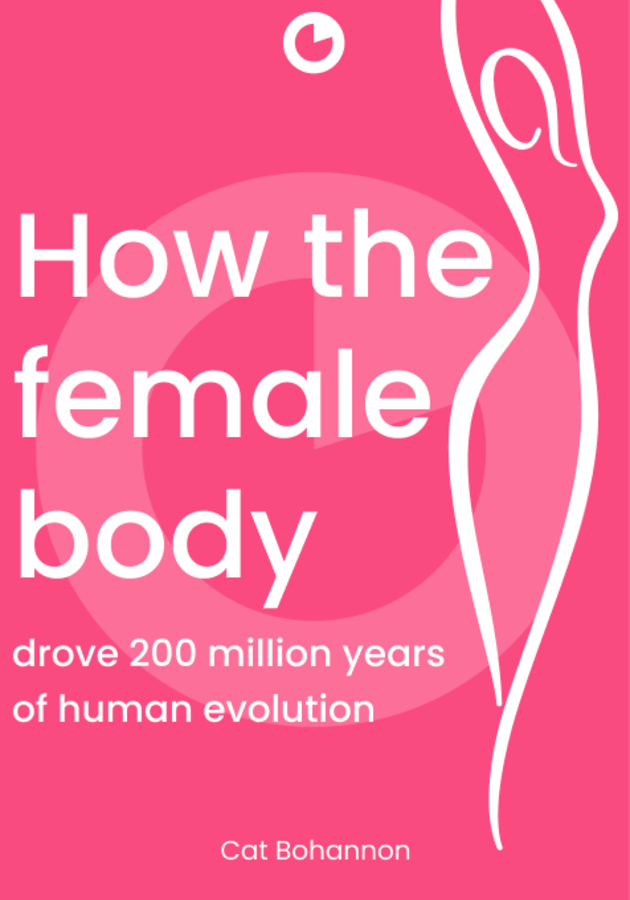With more than 40% of people reporting unhappiness in their marriages, it should be no surprise that almost every second marriage ends in divorce. According to bestselling authors S.J. Scott and Barrie Davenport, the reason for this is not lack of love or passion – but lack of education about what it takes to maintain a happy relationship. That’s what their book “Mindful Relationship Habits” intends to provide. As stated by Scott and Davenport, its main purpose is to “teach you how to have a more mindful relationship by applying 25 specific habits and practices.” So, get ready to learn how to do just that!
Six reasons why relationships fall apart
American psychologist and relationship researcher John Gottman is widely considered one of the world’s foremost experts on couples and marriage, and the godfather of modern relationship counselling. During the past several decades, he has asked hundreds of couples to spend 15 minutes trying to solve an ongoing disagreement between them, before the cameras installed at his “Love Lab” apartment at the University of Washington. During the process, their stress levels are measured by sensors attached to their bodies.
Thanks to these videotaped conversations – and a painstakingly thorough analysis of the data – Gottman is able to deduce, with a certainty of more than 90%, whether a relationship will succeed or not just by watching two people squabble for a few minutes. He shared his findings first in 1999, in what is still considered his magnum opus – “The Seven Principles for Making Marriage Work.” In the book, in addition to outlining the principles mentioned in the title, Gottman lists the six things that predict divorce as well. Understanding these six predictive factors is the first step toward understanding how to make a relationship work. Let’s have a look at them all:
- Poor conflict communication. If a discussion begins with “a harsh startup” – criticism, sarcasm, or contempt – it will inevitably end on a negative note. This doesn’t need to happen often for a relationship to fall into decline.
- The devastating four horsemen. According to Gottman, certain kinds of negativity are so lethal to a relationship that they deserve to be called the Four Horsemen of the Apocalypse. They usually come in the following order: criticism, contempt, defensiveness, and stonewalling.
- Flooding. “A heightened state of arousal and agitation,” flooding is the mind’s fight-or-flight response in reaction to the devastating four horsemen.
- Body reactions to flooding. Flooding is both a psychological and physical response. During a flooding episode, hormonal changes are triggered and blood pressure increases. These physiological changes are impossible to work out through words.
- Failed repair attempts. Some couples try to reduce “the tension and acrimony” during a heated discussion; others don’t. If these attempts succeed from time to time, a relationship can last; if they don’t, the couple is almost guaranteed an unhappy future.
- Bad memories about your history. “Nations are based as much on what the people jointly forget as on what they remember,” once wrote French historian Ernest Renan. Gottman discovered that the same was true about relationships as well. Namely, couples whose positive memories about the past are tainted by negative feelings tend to fall apart or get stuck in unhappy marriages.
Seven benefits of building a mindful relationship
All in all, relationships unravel because of “unconscious, destructive habits fueled by strong emotions and low self-control” – precisely the things the psychological process of mindfulness has been shown to deal with exceptionally well. As a self-control strategy, mindfulness inspires tolerance of different emotional states, balances physiological responses and accompanying mood swings, and encourages communication with the other. That’s why Scott and Davenport claim that a good relationship is almost always a mindful relationship – that is, a relationship between two people willing to focus on past and present experiences without judgment and with a lot of understanding. There are many benefits of being in such a relationship, but the following seven are perhaps the most vital and the most rewarding:
- Better physical health. The health advantages of a happy marriage have been well documented, particularly for men. On the other hand, the downsides of an unhappy relationship and an acrimonious divorce are too many to count.
- A longer life. Happily married people are 15 to 20% less likely to die prematurely than the rest of the population.
- Increased wealth. On average, people who get and stay married are nearly twice as wealthy as those who never marry. Think in terms of combined household incomes and the number doubles!
- Better mental health. Married people are less likely to develop depression and other mental disorders, and are less likely to engage in risky behaviors such as dangerous driving and substance abuse.
- Increased happiness. Especially around middle age, when the stresses of life are most abundant, married individuals are much happier than single people.
- Satisfying sex. According to sex therapists Michael Metz and Barry McCarthy, “couples who have been together for 15 years or longer enjoy the best sex.” It may seem a bit counterintuitive, but it makes sense: the longer you are with someone and the more you know and trust them, the fewer the inhibitions to experimenting and exploring.
- Happier, more successful kids. Marital conflicts, even of the passive-aggressive sort, leave an indelible mark on a child’s psyche and can lead to many mental, emotional and social issues. Needless to point out, children raised by mutually loving parents grow up to be more successful, more stress-free and more enamored with life.
Eight steps to creating mindful relationship habits
To come to the point: if you want a good relationship – and, what’s more, a good life for yourself and the people you love – you and your partner need to adopt a few mindful relationship habits. However, before going over them, it’s essential that we outline Scott and Davenport’s eight-step guide on how to create a successful routine and stick with it. After all, what’s the point of knowing which habits to adapt if you don’t know how to seamlessly incorporate them into your busy day and turn them into your default behaviors?
- Focus only on relationship habits. Due to our inability to draw upon a limitless pool of resources for self-control and willpower – something psychologists refer to as “ego depletion” – it’s important to work on only one habit at a time. When you introduce too many “new things” into your schedule, you incorporate none into your life.
- Commit to one habit for 30 days. According to some, 21 days is enough to build a habit, but according to others, anything less than 66 leads to failure. Scott and Davenport suggest a month-long commitment to mindfulness for success.
- Anchor your mindful practices to established habits. Committing a small habit change to the habits you already have is your best bet to help your body not rebel against the changes. So, find a habit you do consistently, and add a little something to it.
- Pick a time for your relationship habit. Link your new relationship habit to a constant everyday reminder. It doesn't matter if it is a specific time of day (say, every night at 8:00 p.m.), or another trigger (for example, each evening after dinner).
- Take baby steps. You know what they say, small and steady wins the race. So, start small, and focus on slowly building toward something bigger.
- Plan your obstacles. At one time or another during the habit-building month, someone will inevitably be too tired or not in the mood to work on the relationship. Try to plan ahead for obstacles such as these and make a list of “if-then” scenarios.
- Create accountability for your relationship habits. We’re more likely to follow through on a commitment when others are observing us. This is called the Hawthorne Effect and is the reason you should either anonymously track your progress using an app or publicly post regular updates to an online community.
- Reward important milestones. Introduce some fun to the habit-building process. The best way to do this is by setting up milestones and developing a reward system around them.
25 mindful relationship habits and practices
Now that you know how to form a habit, it’s time to list the specific mindful habits that you can form and integrate into your life. Start with one, and adopt only those that are applicable to the problems in your relationship. Remember: it’s a joint effort!
- Prioritize your relationship with meetings. Have regular meetings with your partner to assess the status of your relationship and see what’s working well and what needs to change.
- Learn emotional intelligence. In a relationship, your intelligence quotient (IQ) means much less than the level of your emotional intelligence (EQ) – that is, your ability to perceive, reason, understand, and manage emotions. Try developing your EQ.
- Create a relationship vision. Craft a page-length mutual vision for the future with your partner. Use positive terms and “we” statements, and be specific. “We want to live happily ever after” is not a good relationship vision. On the other hand, “We want to grow alongside each other and talk to each other about anything without fear,” is a good start.
- Lead with respect and kindness. Everyone deserves kindness and respect – and your partner most of all. So, don’t treat them with contempt.
- Practice acceptance of your partner. Address black-and-white assumptions: neither of you is always right. List your partner’s positive qualities and use the list to reinforce your love and admiration for them.
- Cherish your partner. Praise your partner in public and speak to them with tenderness and warmth. Make frequent small sacrifices for them; occasionally, make larger ones as well.
- Touch often. Be physically affectionate toward your partner. Hug, cuddle, kiss, and gently touch several times a day.
- Connect and engage daily – even if it means devising a schedule. “Disengagement,” write Scott and Davenport, “is a slow-working poison that erodes the ties that bind you together.”
- Create shared rituals. Make some activities and events sacred by ritualizing them. Anything will do, from a long hug at the end of the day to painting classes every month, to a quarterly weekend getaway.
- Practice vulnerability. Vulnerability reveals the real you, fosters trust and invites growth. Moreover, being vulnerable leads to healing, creates bonding and, thus, deepens love. So, be courageous enough to feel helpless and exposed before your partner; it’s not a weakness, but a fail-safe way to lifelong happiness.
- Become an expert on your partner. From time to time, test yourself on how well you know your partner, and make them do the same. Through the process, you should become more acquainted with each other, and better prepared to deal with conflicts.
- Embrace your love languages. According to Dr. Gary Chapman, people express and experience love in five ways: words of affirmation, quality time, gift giving, acts of service and physical touch. These are the proverbial five love languages. However, since different people have different primary and secondary love languages, it’s essential that you discern and learn each other’s love languages. That way, you’ll communicate your love better.
- Heal hurts quickly. Don’t allow arguments to drag on for days. Address all misunderstandings as quickly as possible.
- Initiate productive conflict. Don’t quarrel with your partner. Instead, negotiate, compromise and empathize. Those are the three building blocks of productive conflicts.
- Develop active listening. Be willing to allow your partner to dominate the conversation. Reflect back to them and validate their concerns, but refrain from offering solutions. Instead of sympathy, offer them empathy. And always ask for more information.
- Practice empathy. Step into your partner’s shoes. When you focus on yourself, your world contracts; when you focus on others, it expands.
- Use “I feel” instead of “you.” Being in a conscious, mindful relationship means being “willing to explore your own issues, so you feel safe enough to meet your partner’s needs.”
- Drop the “buts” and replace them with the favorite phrase of improvisational comedians: “yes, and…”
- Learn to be mindfully direct. Communicating with someone encompasses being direct with them at times. Directness, however, doesn’t mean “defensiveness, blaming, criticism, or anger.” Mindful directness starts with compassion and ends with honesty.
- Manage your anger constructively. Contrary to popular belief, venting anger only makes people angrier and the people toward whom the anger is directed – more depressed and dejected. So, start using angry feelings as you would a stop sign while driving. The moment they appear, stop, look, and ask for a break to calm down.
- Learn how to apologize mindfully. Despite what Jenny Cavilleri might have said in the 1970 romantic drama “Love Story,” research shows that love does indeed mean having to say you’re sorry. In fact, “apologizing and asking for forgiveness is one of the most significant factors contributing to relationship satisfaction.”
- Spice up your sex life. Make sex a priority and try to get comfortable talking about it – fantasies and all. Also, as soon as a lack of desire appears, start a discussion.
- Practice playfulness. Though its playful nature is one of the things we like most about the beginnings of relationships - the teasing, the tickling, the tenderness – we tend to lose that sense of playfulness as life becomes more complicated and more serious. Don’t fall down that rabbit hole: try to build upon your early playfulness by scheduling serious-free weekends and occasional date nights.
- Disconnect from digital devices. Smartphones and laptops are very useful, but are also “a constant, merciless distraction” that sabotage deeply felt, long conversations. Stay away from them as long as possible.
- Learn to love yourself. Sometimes the only way to save others is by saving yourself first. You cannot love anyone else if you don’t learn to love yourself beforehand. Try to be more compassionate, more accepting and more forgiving toward yourself. Learn to rely on yourself for approval, rather than your partner. Be patient.
Final Notes
“Mindful Relationship Habits” is a bit derivative and somewhat repetitive, but it is well-researched and does provide a few gentle and necessary reminders for better relationships in case you need them – and who doesn’t? – we recommend going for the Kindle edition: it is cheaper and also includes quite a few helpful hyperlinks not available in the paperback.
12min Tip
Examine your relationship. Focus on the area that leads to the most arguments and spend a month with your partner to create a shared mindful habit that addresses the underlying issues. Then move on to the next one.




























